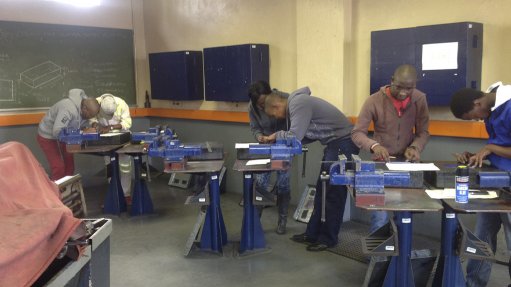
BOILERMAKING QUALIFICATION The programme . . . aims to provide students with an opportunity to gain theoretical knowledge from the college while attaining real-time experience at a company
Owing to the fast-paced changes in the boilers and burners sector, technical vocational education and training (TVET) colleges have initiated an Occupational Qualification Dual System programme that entails sending students into the industry to ensure that they are prepared when they obtain an artisan qualification.
“TVETs are well under way in ensuring that students gain this imperative knowledge from industry partners. The programme aims to provide students with an opportunity to gain theoretical knowledge from the college while attaining real-time experience at a company,” explains Department of Higher Education and Training (DHET) Johannesburg branch deputy director James Mogale.
He adds that the Occupational Qualification, Dual System requires students to be registered apprentices before enrolling in the college and in the dual system. Students then rotate between industry and college with an opportunity to be introduced to the latest technology available in the industry. At the end of three years these students will take trade tests and become artisans if successful.
There are 50 TVET colleges and more than 260 campuses in the country. The DHET selected 20 TVET colleges to pilot the dual system of training apprentices using about 26 campuses for 13 trades. Mogale says these campuses are called centres of specialisation.
Boilermaking is one of the trades piloted by the Ekurhuleni East, Tshwane South, Majuba, Umfolozi and Northlink colleges.
After three years, apprentices will sit for a trade test and qualify as artisans if successful. It is during this three-year period that the dual system will expose students to “industry insider education”.
In addition to the dual system, TVETs also offer National Technical Education (NATED), also known as Report 191, and The National Certificate Vocational (NCV) programme for boilers and burner qualifications.
Students enrolled for Report 191 acquire only theory-based knowledge over the three years as students and are then sent out into industry to attain the practical experience, explains Mogale.
Once that is complete, the students are required to write a trade test, which certifies them as artisans.
NCV comprises theory and practical learning. It therefore differs to NATED as workplace experience is offered in the industry when the student serves their apprenticeship.